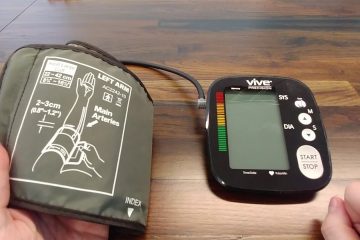Tips To Keep Your Blood Pressure Down

As our lives become more hectic, so does the aggravation and progression of various diseases. Lifestyle and diet are factors that contribute to lifestyle diseases. High blood pressure is one example. Hypertension, just like many heart-related illnesses, can lead if untreated to various chronic diseases. Hypertension can often go undetected as it’s not always easy to identify. However, it can become a serious problem that can threaten your health. This article will provide information on how to manage high blood pressure. This article describes prehypertension treatment and its causes, symptoms and risks. The article includes information on how to manage hypertension.
Blood pressure refers to the pressure that blood exerts on the walls of the arteries. Blood pressure is created every time the heart beats. It is called hypertension if the blood pressure against the walls of an artery is too high. To pump blood, the heart must work faster. The blood pressure is highest during heartbeats. It is called systolic. Between beats, blood pressure falls as the heart is resting. This is called diastolic. Blood pressure is measured by millimeters or mercury (mm Hg). Hypertension can be defined as a blood sugar reading between 140/80 mm Hg. Hypertension is a blood pressure reading that exceeds or equals 140 mm Hg systolic or 90 mm Hg diastolic.
In 90% to 95%, high blood pressure can be attributed to no identifiable cause. This type, also called primary hypertension or essential hypertension, tends slowly to develop over many years. Secondary hypertension, which accounts for 5-10% of all cases, is caused by an underlying cause. As stated earlier, the majority of people suffering from high blood pressure do so without any obvious symptoms. Some people might feel dizzy spells or dull headaches during the first stages of high pressure.
These symptoms may not develop until high blood sugar levels have advanced. High blood pressure can be caused in many ways. These include obesity and hereditary factors as well as smoking, excess alcohol consumption, stress levels, high blood pressure, and age. High blood pressure is also possible due to certain disease conditions. High blood pressure could also be caused by kidney disease or hormonal disorders such as Cushing’s syndrome and hypothyroidism. High blood pressure could lead to numerous complications for different organs.
To maintain high blood pressure, it is essential to change your lifestyle and diet. Eating a healthy, balanced, nutritious diet is key to maintaining high blood pressure. A healthy diet is one that includes whole grains, fruits and veggies as well low-fat cheese. High blood pressure control can be achieved by eating potassium-rich foods. It is possible to maintain a healthy diet without drinking coffee, colas or high-sodium foods like junk or fast food, ketchups, pickles or olives, all kinds of sauces, canned foods and salted nuts. It is possible to use herbs and other spices instead of excessive salt. They not only enhance flavor, but are healthy.
Saturated or ‘bad” fats can be substituted for ghee and unsalted butter. It’s also crucial to reduce alcohol consumption. Being overweight triggers high blood pressure. Thus, it is vital to exercise regularly, even for 30 mins per day, in order to maintain high blood pressure. High blood pressure sufferers must quit smoking as smoking can injure the walls of blood vessels and speed up the process of hardening arteries. Stress management is key to lowering high blood pressure. Deep breathing exercises, stress management techniques, and muscle relaxation can all be used to manage stress. Lifestyle and diet changes can help lower blood pressure. Consult a doctor to get better wellness and health.
Simple diet and lifestyle changes can help one manage hypertension better. However, it is important to consult a physician to obtain medication to help prevent hypertension from getting worse. Low blood pressure may not be apparent due to a lack of symptoms. It is therefore important to get a regular checkup. Eating a healthy diet with vegetables, fruits, dairy and low-fat can help a lot. Regular exercise is also important. High blood pressure sufferers should cut down on alcohol and quit smoking. Hypertension can easily be controlled by reducing alcohol intake and quitting smoking if this is possible.









